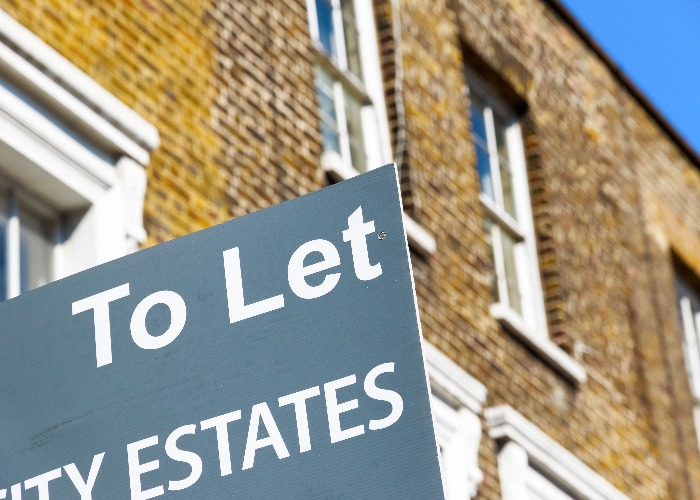Bounce back loans: investors accused of using loans to purchase property

Rather than support businesses, the bounce back loan scheme is reportedly being abused by some investors who see the chance to add properties to their portfolios.
The economic damage from Covid-19 has been staggering already, and it only looks set to get worse in the months ahead.
Thankfully the Government has taken some welcome action throughout this crisis, from introducing the furlough scheme to (eventually) coming up with a way to support the self-employed.
It also launched bounce back loans, aimed at giving small and medium-sized businesses a bit of financial support to help them keep going through this difficult period.
However, it appears that a lot of investors have been abusing the scheme to make a profit and drive up house prices in the process.
How does the bounce back loan work?
First it’s worth a quick look at how these loans are intended to work.
The scheme allows smaller businesses to borrow between £2,000 and 25% of their turnover, up to a maximum of £50,000, with no fees or interest to pay for the first 12 months. After that the interest rate rises to 2.5% a year.
While initially it was introduced as being available for up to six years, this has now been extended up to ten years.
In addition businesses will be offered the chance to take payment holidays or switch to interest-only payments for a period if needed.
It’s open to businesses that were established before 1 March and who have been adversely impacted by Covid-19, though you can’t make a claim if you’ve already got money through one of the other business support schemes like the business interruption loan scheme.
The actual loan itself comes from one of 11 lenders backing the scheme, like Lloyds and Barclays. It’s 100% guaranteed by the Government though.
Expanding your portfolio
Now it seems fairly clear what the purpose of these loans are; they are supposed to be a bit of a safety net for businesses that are a little worried about revenues dropping, and offer a chance to shore up the bank balance ahead of being paid back when things settle down a little.
And it’s proven popular too, with well over a million loans taken out to date.
However, it would seem that some borrowers have rather different intentions for the money they receive from the loans, looking to use them as funds to put towards purchasing a property.
A report recently from trade title Mortgage Solutions revealed that a host of brokers had been approached by clients looking to use the cash they had received through the scheme as a deposit on a buy-to-let property.
Now, generally lenders don’t let you use a loan as a deposit when you buy a home. You can’t just take out a personal loan to cover the equity needed.
However, some lenders will accept intercompany loans for this purpose.
In practice, this would mean the bounce back loan being paid to company A, then lent onto company B, where it is then used as a deposit on a property purchase.
Given the sharp growth in landlords investing through limited companies, rather than as individuals over the last couple of years, this isn’t exactly the most outlandish proposition.
Lenders have different standards
It’s fair to say the response to bounce back loans across the board has been pretty mixed from lenders.
Some landlords have taken out bounce back loans for entirely innocent reasons ‒ supporting their other businesses for example ‒ but have found lenders unwilling to offer them mortgage finance as a result.
And they’ve taken to message boards to bemoan this approach, accusing lenders of being overly cautious.
According to broker Mortgages For Business, lenders are increasing the due diligence they conduct on borrowers, asking far more questions and likely wanting to see accounts to show how the pandemic has affected your business before approving any finance.
But it's unclear whether all lenders are quite as hot on this, or whether some are simply failing to ask the right questions.
'Landlords buying without even viewing properties'
The sneaky use of bounce back loans as a way to invest is now apparently serving to boost house prices in certain regions, particularly in the north.
According to Max Armstrong from buy-to-let specialist firm North East Property Investment, cities like Sunderland are seeing a swarm of investors from the south snapping up properties ‒ in some cases without even looking at them ‒ by using the cash from the bounce back loan outright, opting against even bothering with a mortgage.
Speaking to The Daily Telegraph, Armstrong said that every day his firm is getting two to three enquiries from investors ‒ often complete novices ‒ who planned to use bounce back loan funds to purchase a property outright.
He told the paper: “People are coming up from London and buying properties for £50,000 without even looking at them because they have their bounce back loan in their pocket.
"They’re paying that even when the properties are only worth £40,000.”
The British Business Bank, which is overseeing the scheme, has a team that monitors potential fraud within bounce back loans.
Only time will tell whether it proves effective in identifying those who have taken advantage of the loan in this way, or whether the damage has already been done.
Comments
Be the first to comment
Do you want to comment on this article? You need to be signed in for this feature